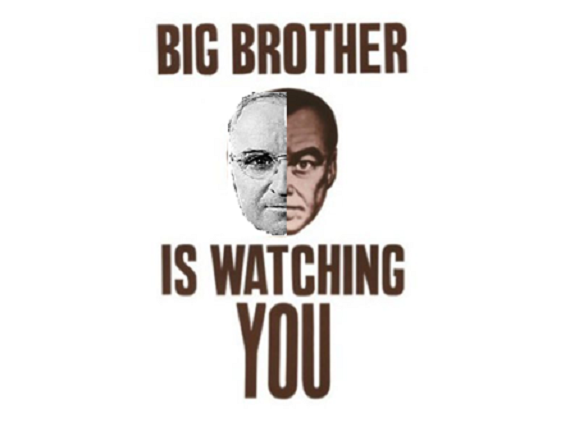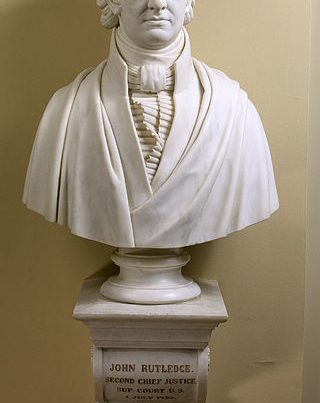
Most people believe the novel 1984 by George Orwell was about some futuristic dystopia. Published in 1949, the story reflected the fear of what the world could be like under totalitarian government. The main character in the story, Winston Smith, works in the Records Department of the “Ministry of Truth” as a reviser of historic records. Thought police, misleading language, heavy surveillance, and outright deception are used to make sure everyone is conforming to the state.
While one could argue that the United States has been headed toward such a society for some time, the true arrival of totalitarian government in this country occurred under Harry S. Truman, after the election of 1948.
The years around this election are a vital clue to what was happening behind the curtain on the world stage. Truman established the CIA in September of 1947, Israel was established in May of 1948, and the Communist People’s Republic of China was established in October of 1949.
By 1952, the United States government had become openly authoritarian. Not only did Harry Truman create the NSA in November of that year to spy on Americans, but the government also began taking steps to rewrite American history.
An example can be found in the 1952 U.S. Army Soldiers Guide which says the following about “democracy” in America:
“Meaning of democracy: Because the United States is a democracy, the majority of the people decide how our government will be organized and run – and that includes the Army, Navy, and Air Force. The people do this by electing representatives, and these men and women then carry out the wishes of the people.”
This was deliberate misinformation and deception. Consider that the 1928 manual explicitly stated:
“The American philosophy of Government emphasizes that The Government of the United States is not a democracy but a Republic.”
The 1928 manual then further elaborates on our republican form of government:
“Our Constitutional fathers, familiar with the strength and weaknesses of both autocracy and democracy, with fixed principles definitely in mind, defined a representative republican form of government. They ‘made a very marked distinction between a republic and a democracy…and said repeatedly and emphatically that they had founded a republic.’”
So what changed? Why was the military teaching its recruits in 1952 that America was a democracy? The reason is that Harry Truman potentially committed treason two years earlier when he allowed the UN Charter to supercede the Constitution.
The proof is in a document, authored by Truman, titled “Our Foreign Policy.” It is Department of State Publication 3972, General Foreign Policy Series 26. It was published in September of 1950 by the Division of Publications for the Office of Public Affairs.
In the document, Truman repeatedly refers to the United States being part of an “international community” and explained that this means “organizing members to deal collectively with their problems, and to defend themselves collectively against anyone who may threaten the peace and tranquility of the community.”
Truman then indicated that being part of such a community “may, in time, lead to the international control of all armament, which is essential. It may eventually lead to a form of world government, which is a possibility that excites the imagination of some adventurous people.” (emphasis added)
This is why the election of 1948 was a turning point in American history. Some Americans believed they had to make the choice between if the United States would remain truly free, or if it would become an authoritarian police nation. Most Americans in both parties had no idea that their leaders were giving up national sovereignty in favor of a socialistic, one-world government. Harry Truman went on to launch the Korean War as an explicit police action, and the United States has basically been at war all over the world since then, mainly as muscle for the UN. All the while, the American public was being slowly disarmed through mass shootings and dumbed-down with “fake news,” chemically engineered food, divisive identity politics, and poor education.
For these same reasons, Strom Thurmond was labeled a simple firebrand segregationist in order to diminish the wider political statement of the States’ Rights Democrats ticket in 1948. Thurmond was trying to wake Americans up to the reality that totalitarianism can (and would) happen in America. This is why the following planks were inserted into the States’ Rights Democrats platform:
“We oppose the totalitarian, centralized bureaucratic government and the police nation called for by the platforms adopted by the Democratic and Republican Conventions…We favor home-rule, local self-government and a minimum interference with individual rights…We oppose the usurpation of legislative functions by the executive and judicial departments. We unreservedly condemn the effort to establish in the United States a police nation that would destroy the last vestige of liberty enjoyed by a citizen.”
Perhaps this sentiment was best seen in the political commentators at the time that supported Thurmond, like the Jewish libertarian Murray Rothbard, who wrote in a letter to Thurmond that “There are millions of Americans, who would flock to your banner. They are weary of being led by the nose by New Deal politicians of both parties – they are tired of being deprived of their votes because there is no anti-socialist and pro-liberty party to which they can turn.” Or the essayist H.L. Mencken, who sympathized with the Dixiecrats, but predicted a Truman victory in 1948 because “voters are boobs who distrust real intelligence and throw their caps for the candidate most closely approximating their collective IQs.” Or the poet laureate Robert Frost, who privately offered praise for Thurmond’s “Dixiecrats.”
The time has come to seriously reexamine what we think we know about the election of 1948. With socialism on the rise currently in America, to the point where Donald Trump has proclaimed “America will never be socialist nation,” it is interesting to go back and research all Harry Truman did to expedite our arrival to this point.






